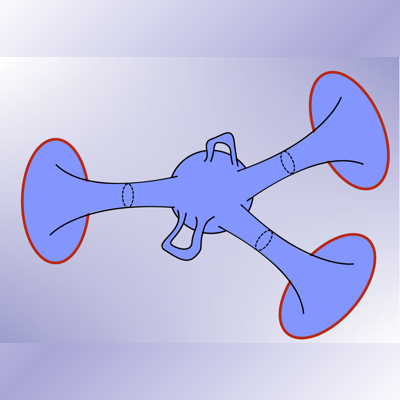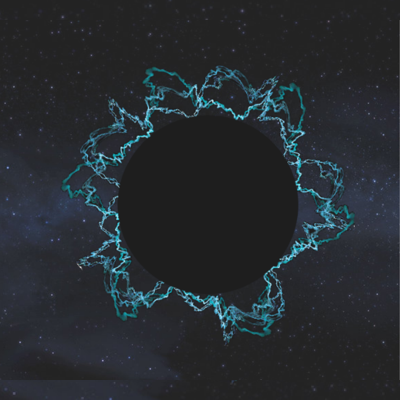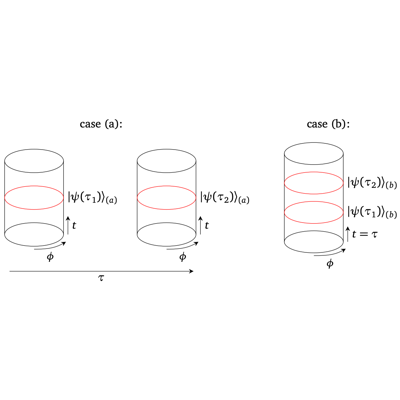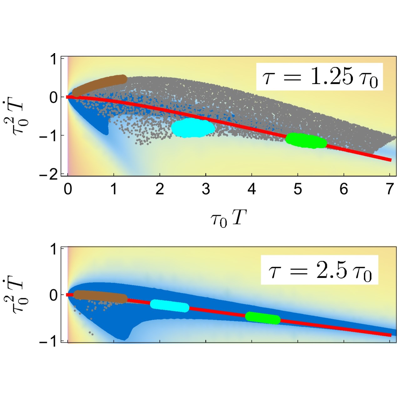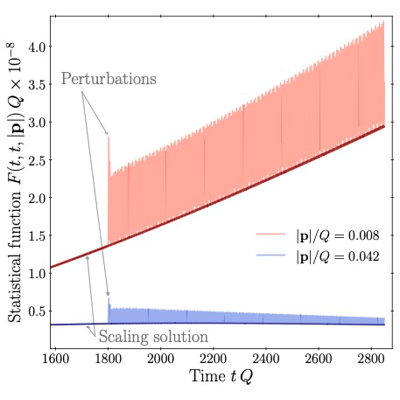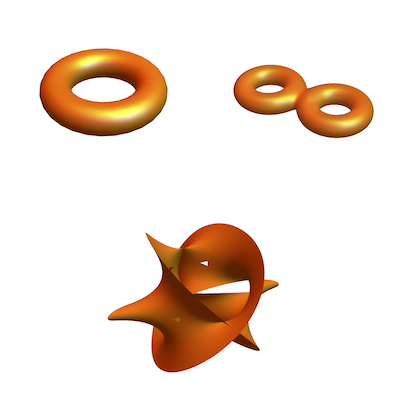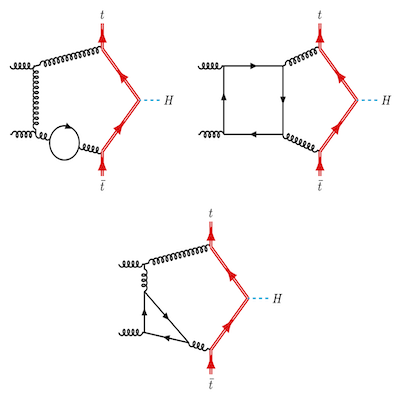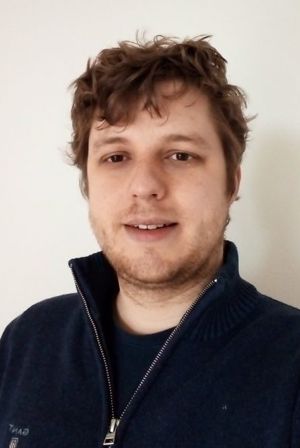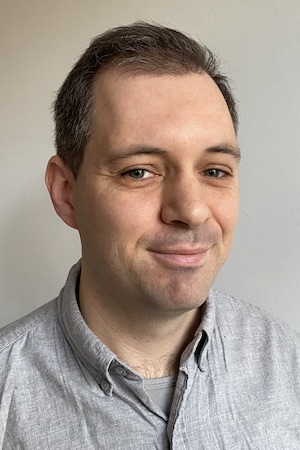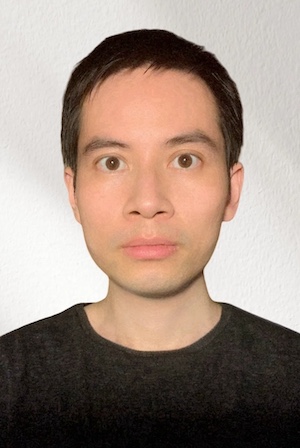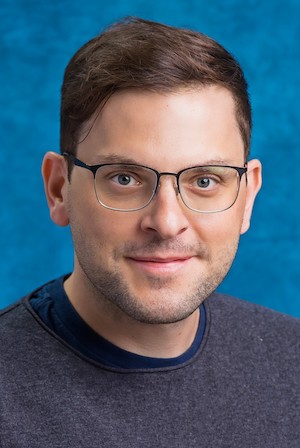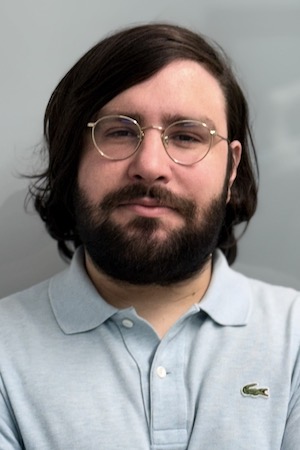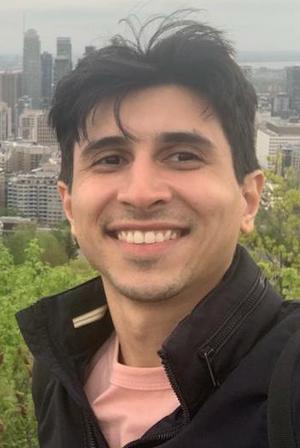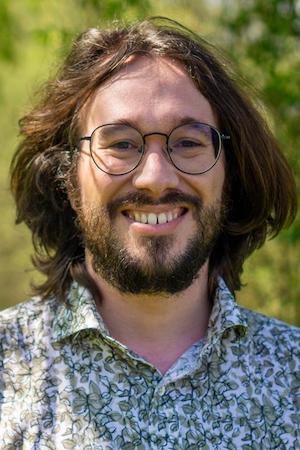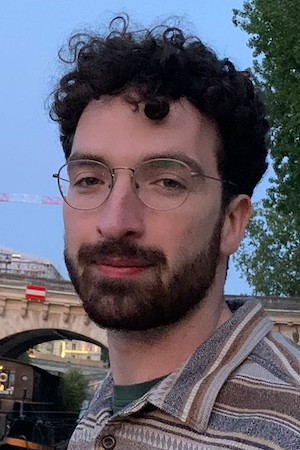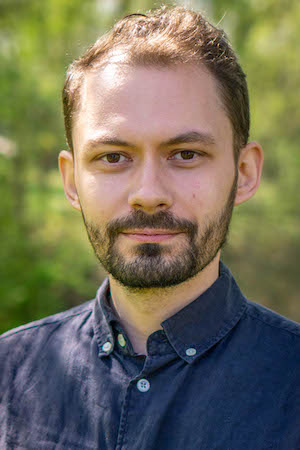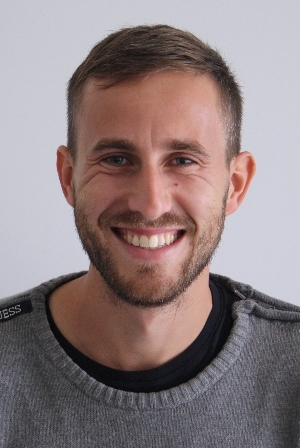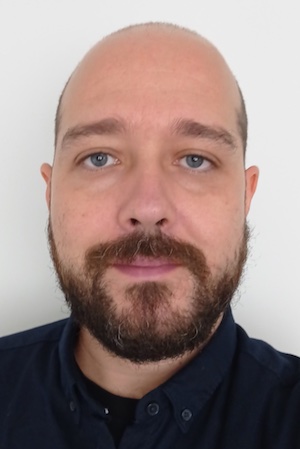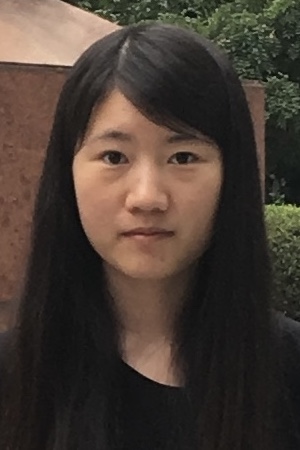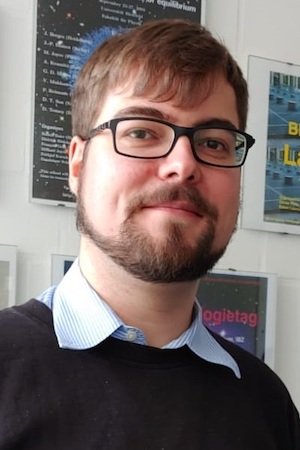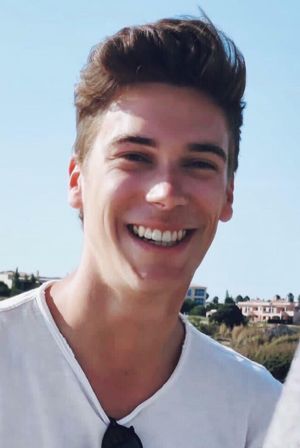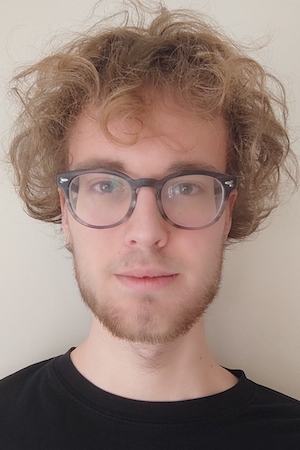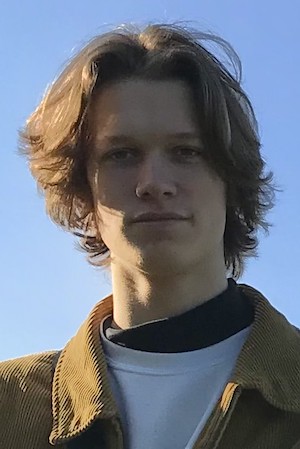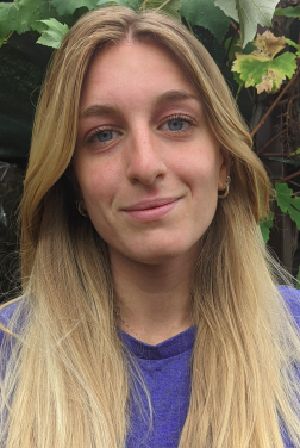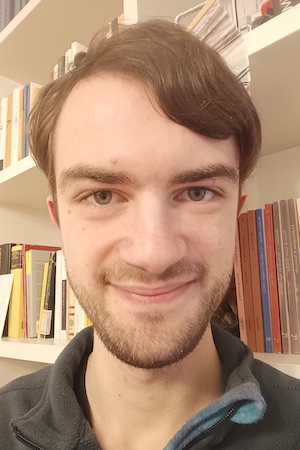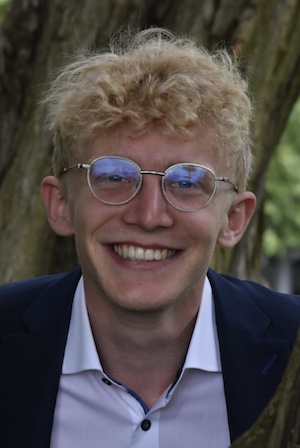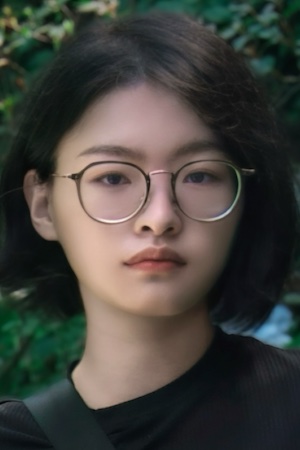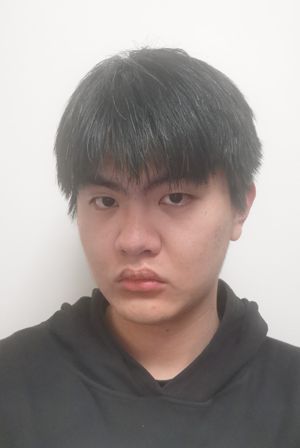My interests lie in broadly-understood emergent phenomena in quantum field
theories. I am using tools from quantum information science to understand
how dynamical spacetime emerges from quantum field theory within holography.
I am also studying universal behaviors arising in thermalization processes
of quantum fields, such as relativistic hydrodynamics and non-thermal fixed
points.
My research interests are in quantum gravity, black hole physics, holography
and string theory. In particular, I am driven by the mysteries surrounding
black holes and their horizons in quantum gravity. The concrete approach I
am pursuing is that of exactly solvable lower-dimensional holographic
gravity models (such as Jackiw-Teitelboim (JT) gravity and its cousins),
where explicit quantum gravitational calculations can be done and
interpreted. This research program is supported by the ERC Starting Grant
BHHQG.
My earlier work focused on other aspects of black hole quantum physics,
including string theoretic descriptions of the stretched horizon and black
hole entropy, and the role of edge states in the entanglement entropy of
bulk fields across the black hole horizon.
My research focuses on understanding fundamental interactions in quantum
field theory and how these interactions are mathematically encoded in sums
of Feynman diagrams, or "scattering amplitudes". I understand the physical
and mathematical structures that hide behind the Feynman diagram, with the
goal of developing new methods to study the dynamics of the Standard Model
of particle physics at colliders.
We will have one or more postdoc positions available to start in the Fall of
2025.
To apply, please use the joint
postdoc application
with deadline November 30, 2024.
Xin An
My current research focuses on the physics of strongly interacting systems,
such as quark-gluon plasma produced in heavy-ion collisions and governed by
quantum chromodynamics, and cold trapped atoms in many-body systems
described by quantum electrodynamics.
I am committed to advancing our understanding of these systems by developing
novel concepts and techniques across various frameworks, including
statistical mechanics, relativistic hydrodynamics and kinetic theories,
gauge-gravity duality, as well as non-equilibrium quantum field theories,
with a particular emphasis on fluctuations and far-from-equilibrium
dynamics.
Panos Betzios
My research interests revolve around the general theme of gauge/gravity
dualities, matrix models and the emergence of spacetime. I am trying to
understand the physics of black holes, wormholes and cosmological spacetimes
using string-theoretic, holographic and other mathematical techniques such
as those of random matrices.
Currently I am exploring lower dimensional models of black hole spacetimes
using variants of matrix quantum mechanics and in parallel the connection
between Euclidean wormholes and inflationary cosmologies in higher
dimensions.
Federico Coro
My research interests focus on the calculation of higher‑order scattering
amplitudes for processes relevant to phenomenological studies at colliders.
My work lies at the interface between mathematics and theoretical physics,
with a particular interest in the mathematical structures that arise in the
context of scattering amplitudes.
My aim is to use state-of-the-art methods from active research areas in
mathematics to obtain results for relevant physical processes that require
more legs and loops to enable an accurate comparison with experimental data.
Bruno de Souza Leão Torres
Most of my work in the past has focused on the intersection between quantum
information and quantum field theory. I am particularly interested in
understanding how to connect abstract concepts from quantum information
theory with the experience of local observers from an operational
perspective, and what that can teach us about quantum information and QFT in
relativistic settings.
My goal in the near future is to extend this approach to quantum gravity,
and understand how fundamental concepts in quantum information such as
locality and entanglement are impacted by quantum-gravitational effects.
Simone Devoto
My scientific interest is the phenomenology of high-energy particle physics,
with a particular focus on higher-order corrections and amplitude
calculations. The ongoing precision physics program at hadron collider
experiments requires theoretical predictions that match the impressive level
of experimental accuracy.
The goal of my research is to provide such predictions for various processes
taking place in hadron colliders and, in particular, to provide the
corresponding amplitudes, one of the main bottlenecks in their computation.
The two main lines of research I am currently exploring are associated
top-quark production at the LHC and the inclusion of higher-order
electroweak corrections in precision studies.
Victor Franken
My main line of research has been the connection between quantum gravity and
quantum information. I am interested in formulating laws in quantum gravity
as quantum information–theoretic constraints, which help us understand the
structure of spacetime and quantum matter, and play a central role in
AdS/CFT.
I have also worked on developing holography in cosmological spacetimes, such
as de Sitter, using constraints from quantum information and causality. In
addition, I am interested in solvable toy models of quantum gravity, such as
Jackiw–Teitelboim gravity, and in the gravitational path integral. These
approaches aim to probe quantum gravitational effects beyond the
semiclassical regime.
Pavel Novichkov
My research focuses on exploring scattering amplitudes and Feynman integrals
in quantum field theory, with applications to collider and
gravitational-wave physics. I am particularly interested in developing new,
efficient methods for precision amplitude calculations through understanding
of the underlying analytic structures and leveraging modern mathematical
tools such as computational algebraic geometry, tropical geometry, and
hypergeometric systems.
In earlier work, I investigated how modular symmetry can shed light on the
origin of fermion mass hierarchies and their mixing patterns.
Jacopo Papalini
My research is centered on exploring lower-dimensional models of quantum
gravity, aiming to extract crucial insights into black hole physics and the
quantum characteristics of spacetime beyond the semiclassical realm. One
particularly promising avenue is the investigation of JT gravity, which
provides an unparalleled level of control, due to the exact solvability of
partition functions on diverse topologies and correlators.
Furthermore, my focus extends to understanding the interplay between the
first-order formulation of these gravity models and lower-dimensional gauge
theories, where intriguing nonperturbative effects can be detected and the
computation of interesting observables, such as Wilson lines, can be tackled
using diverse techniques, including the application of supersymmetric
localization.
Alexandre Serantes
My research explores the non-equilibrium physics of strongly interacting
quantum matter, combining modern ab initio theoretical approaches—such as
holography and the bootstrap—with powerful tools from effective field
theory, including relativistic hydrodynamics.
Most recently, my focus has been on novel complex-valued measures of quantum
information known as pseudoentropies, particularly within the framework of
holography. I am also investigating how holography’s unique ability to evade
the sign problem can be leveraged to probe non-equilibrium phenomena in
extreme environments, such as those found in astrophysical and cosmological
contexts.
Qian Song
My research focuses on computing higher-order corrections to scattering
amplitudes in quantum field theory, especially for physics related to the
Large Hadron Collider and future electron-positron colliders. Comparing
theoretical predictions with experimental results from collider measurements
can deepen our understanding of fundamental physics. The intricate
mathematical structures involved make these calculations highly nontrivial.
I am particularly interested in developing new tools for amplitude
computations and in uncovering the underlying mathematical structures.
Clemens Werthmann
Broadly speaking, my research deals with collective phenomena in quantum
systems, mostly in heavy and light ion collisions and recently also
ultracold quantum gases. In the former, I have examined the applicability of
hydrodynamics on a phenomenological basis by comparing to descriptions in
kinetic theory.
My current focus is the emergence of hydrodynamic attractor behaviour,
referring to a phenomenon that can be observed in rapidly expanding systems,
where the time evolution quickly converges to a universal curve across
various initial conditions, interaction strengths and dynamical
descriptions.
Andreas Belaey
Technical and conceptual problems regarding a quantum theory of gravity and
a microscopic description of black holes have been solved in the
lower-dimensional setting of 2d Jackiw-Teitelboim (JT) gravity. I aim to
understand whether the lessons of JT gravity generalize to other related
models of lower-dimensional gravity, and to eventually go up in the number
of dimensions, starting with 3d first. A unifying approach is to exploit the
underlying gauge symmetries.
Robbe Brants
My aim is to improve the understanding of thermalization in hydrodynamic
systems through their mode structure. This fundamental description allows
differentiating the processes that contribute to equilibration. For studying
these structures I focus on kinetic theory, mainly in the relaxation time
approximation, but also the quasinormal modes of black holes in holographic
systems.
I am also interested in applying this understanding to investigate the
causality of relativistic fluids. Taking it to the limit allows looking at
the most extreme transport phenomena a relativistic system can possess.
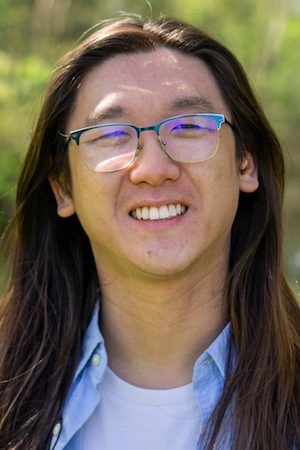
Zhi Cong Chan
I am interested in the mathematical structures that arise in high-energy
physics and how they manifest the symmetries of the underlying theories. In
the context of scattering amplitudes, Feynman diagrams represent an
intuitive picture of particle interactions but rapidly grow to an
intractable number of terms at higher loop orders; the “physics” is hidden
by the combinatorics of the computation.
My research aims to find structure in scattering amplitudes using algebraic
geometry, on-shell methods, and infrared factorization. I am currently
studying the four-dimensional limit of the two-loop integrand for n-gluon
fusion in pure Yang-Mills.
Matisse De Lescluze
I am focused on the dynamics of quantum field theories in out-of-equilibrium
settings, with a particular interest in the emergence of universal behavior.
My current work involves developing a method to calculate the system's
response to perturbations around (quasi-)stationary solutions of the
equations of motion.
This approach will aid me in studying how systems evolve toward non-thermal
fixed points—self-similar solutions that appear in a wide range of physical
phenomena, including heavy-ion collisions, ultracold quantum gases, and
early-universe cosmology.
Francesca Mariani
My research focuses on lower-dimensional models of quantum gravity and their
connections with higher-dimensional solutions. In this context, 2d
Jackiw-Teitelboim (JT) Gravity is an extremely useful tool at our disposal.
This 2-dimensional model is fully solvable and captures the near-horizon
dynamics of higher-dimensional near-extremal black hole solutions.
Fabio Ori
My research interests concern applications of holography to describe how
strongly coupled quantum field theories evolve when starting from
out-of-equilibrium initial conditions, as in heavy-ion collisions and
ultracold quantum gases.
The aims are to uncover the conditions leading to the emergence of
self-similar solutions, and to investigate the role of holographic timelike
non-local probes in describing real time evolution.
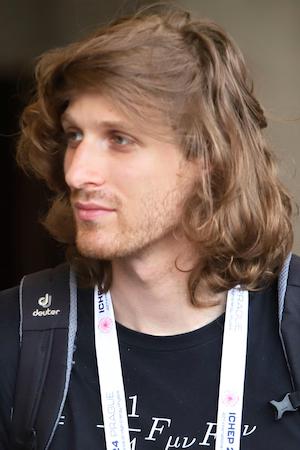
Daniel Schieber
My research interests lie in theoretical particle physics, particularly in
scattering amplitudes and particle phenomenology. I focus on developing
techniques for precision calculations relevant to LHC experiments,
especially those involving higher-order corrections at the
Next-to-Next-to-Leading Order (NNLO). A central aspect of my work involves
computing master integrals, the key building blocks, necessary for the
evaluation of two-loop amplitudes.
Specifically, I am working on the NNLO contributions to 6-particle
scattering involving massive fermions at the LHC.
Tim Schumann
To learn about the intricate behavior of quantum gravity is the most
interesting and exciting question in physics for me. My research focuses on
quantum information aspects of quantum gravity in the context of holographic
theories where the bulk spacetime emerges as a geometrization of the
quantum-information structure of the boundary state.
Currently I am investigating complexity, a quantity that originates from
quantifying the difficulty of carrying out a task in quantum information
science using limited resources, which has been of recent interest in
characterizing the volume of the black hole interior and quantum chaos.
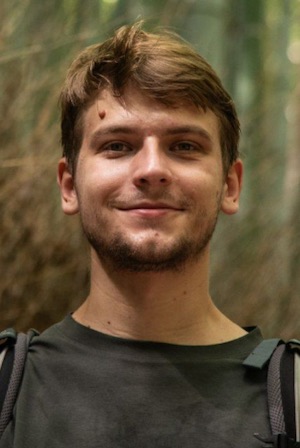
Thomas Tappeiner
My research interests are centered on the exploration of lower-dimensional
models of quantum gravity and their application to black hole systems. Due
to the large amount of control, we have over these systems, models like
JT-gravity and double-scaled SYK offer a unique opportunity to catch
glimpses of gravitational physics far beyond the classical regime.
I am explicitly trying to see how we can better understand the mathematical
structures underlying these models and how the lessons learned can be
applied to operational questions exploring physics near the black hole
horizon.
王梦婷 (Meng-Ting Wang)
My research interests lie in the quantum information aspects of quantum
gravity, with a focus on holography, AdS/CFT, and circuit complexity. I am
particularly interested in understanding how spacetime—especially de Sitter
space—can emerge from microscopic quantum dynamics, and how complexity and
entanglement entropy serve as probes of this emergence. I investigate how
holographic complexity behaves under various gravitational constructions.
I am also exploring microscopic models, such as the double-scaled SYK model,
to better understand the fine-grained structure underlying quantum
complexity.
吴奇峰 (Qi-Feng Wu)
My interests are mainly focused on quantum gravity and quantum information.
I am trying to use ideas from information theory to understand how gravity
emerges from quantum mechanics. In order to achieve this goal, the key is to
understand the gravitational correspondence of some information theoretic
concepts, including entanglement, complexity, quantum error correction, etc.
